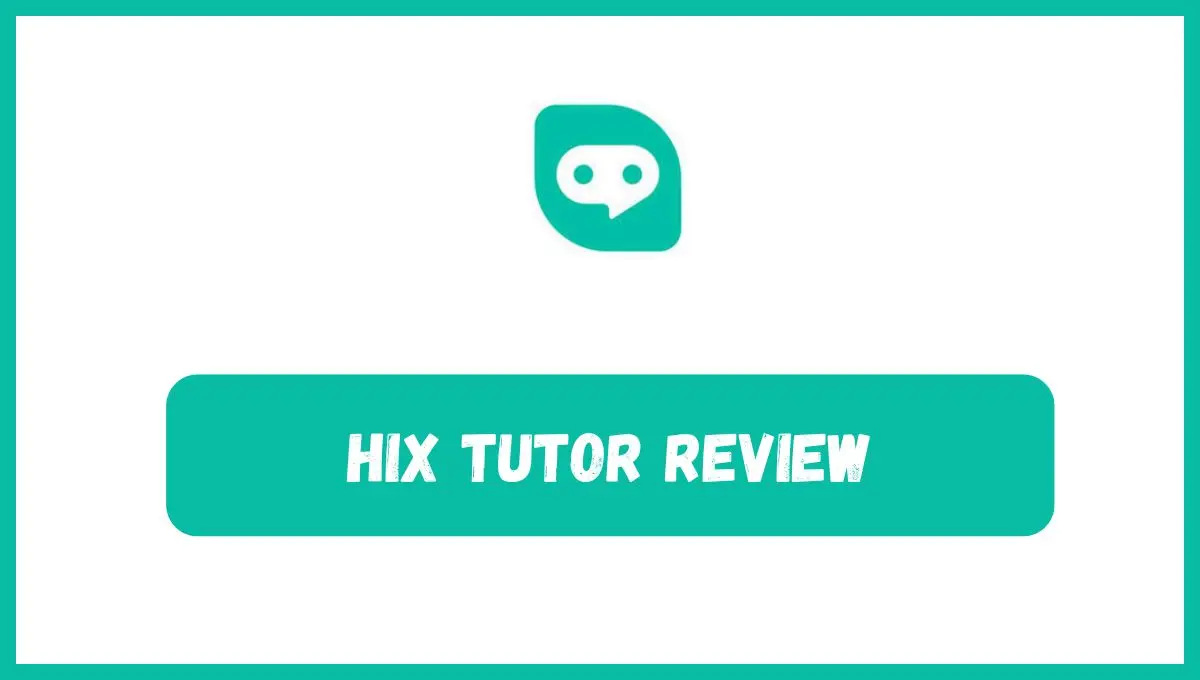It is a question that often hangs in the air during the first days of a class, setting the stage for what we hope to gain from the journey ahead. While expectations may vary depending on the specific subject, some universal desires underpin any learner’s experience. Let’s delve into these aspirations and see how they might manifest in different settings.
Answer: What is your expectation in this subject?
When asked about your expectations in a subject during an interview, it is important to be honest and specific about what you hope to gain from the position. According to, you can answer this question by discussing your goals and how they align with the job requirements.
You can also mention your desire to learn and grow in the field, as well as your willingness to take on new challenges. It is important to avoid making unrealistic demands or sounding too vague in your response.
Additionally, if the question is about salary expectations, you can use strategies such as researching salary ranges in your field and location or giving a salary range instead of a specific number
- Research and Understanding: Start by briefly mentioning any preliminary research or understanding you have about the subject. This can show that you’ve taken the initiative to familiarize yourself with what lies ahead.
- Personal Goals: Share what you hope to achieve by the end of the course or study period. Whether it’s mastering specific skills, gaining a deeper understanding of foundational concepts, or applying knowledge in real-world scenarios, clarify your objectives.
- Challenges: Recognize potential challenges or areas where you anticipate needing additional support. This shows self-awareness and a proactive approach to seeking assistance or resources when necessary.
- Engagement: Express your desire to actively participate, contribute, and engage with the subject matter. Highlight any particular aspects of the subject that excite or intrigue you.
- Outcome: Conclude by summarizing what you envision as a successful outcome. This could be achieving a certain grade, acquiring a particular skill set, or simply gaining a broader perspective on the topic.
How you answer “What is your expectation in this subject?” depends on several factors, including:
Who is asking the question:
- Teacher/Professor: If your teacher is asking, focus on your academic goals and desired learning outcomes. Mention specific skills you want to develop, concepts you want to understand, or challenges you want to tackle.
- Classmate/Peer: If it’s a classmate, you can be more informal. Share your general interest in the subject, areas you find particularly intriguing, or questions you hope to explore.
- Someone unfamiliar with the subject: If the person has limited knowledge, offer a broader overview of your expectations. Briefly explain the subject’s importance, your personal motivations for studying it, and any practical applications you see.
The nature of the subject:
- Technical subject: Focus on specific skills you want to acquire, like problem-solving or analytical thinking. Mention applications of the knowledge and real-world problems you’re eager to tackle.
- Humanities subject: Express your interest in developing critical thinking, analysis, or communication skills. Discuss specific topics you find fascinating and questions you hope to explore.
- General topic: Focus on your desire to learn new information, gain different perspectives, or broaden your understanding of the world. Mention specific aspects of the topic that pique your curiosity.
Here are some general tips for answering:
- Be honest and specific: Don’t give generic answers; share your genuine thoughts and aspirations.
- Focus on learning and growth: Emphasize your desire to acquire new knowledge, skills, and understanding.
- Connect the subject to your interests: Explain how the subject aligns with your personal passions or future goals.
- Ask questions in return: Show your engagement by asking about the other person’s expectations or what they hope to gain from the subject.
- Keep it concise and positive: Avoid negativity or complaining. Express your enthusiasm and willingness to learn.
Expectations from teacher and subject
1st learn about Expectations from yourself:
Expectations from yourself:
- Engagement and effort: Actively participating in class discussions, completing assignments with dedication, seeking help when needed, and striving to understand the material fully.
- Growth and skill development: Aiming to develop specific skills (problem-solving, critical thinking, communication) and deepen your understanding of the subject matter.
- Intellectual curiosity: Maintaining a questioning mind, asking critical questions, and exploring topics beyond the syllabus.
- A supportive learning environment: Contributing to a positive classroom atmosphere by respecting classmates, collaborating effectively, and offering helpful insights.
Expectations from the teacher/subject:
- Clear and engaging teaching: Presenting complex concepts in a way that is understandable and stimulating, utilizing diverse teaching methods, and providing constructive feedback.
- Relevance and real-world application: Demonstrating how the subject matter connects to real-world situations and highlighting its practical applications.
- Support and guidance: Offering individual help and support when needed, creating a safe space for asking questions, and providing opportunities for additional learning resources.
- Challenge and stimulation: Pushing you to think critically, engage in challenging tasks, and expand your knowledge beyond the basics.
- Passion and expertise: Demonstrating enthusiasm for the subject, fostering a love of learning, and sharing their knowledge with genuine passion.
What do you expect to learn from this subject?
Here’s a structured approach to crafting your answer:
- Course Overview: Begin by acknowledging specific topics or areas outlined in the course syllabus or description. This demonstrates that you have a clear understanding of what the subject entails.
- Skill Development: Highlight the specific skills or competencies you anticipate gaining. This could be theoretical knowledge, practical skills, analytical abilities, or even soft skills like communication or teamwork.
- Application: Discuss how you intend to apply what you learn in real-world scenarios or future endeavors. Whether it’s within a particular industry, research context, or personal project, articulate how the subject matter will be beneficial.
- Personal Growth: Reflect on how engaging with the subject will contribute to your intellectual growth, curiosity, or personal development. Consider aspects like critical thinking, problem-solving, or expanding your worldview.
- Collaboration and Interaction: If applicable, mention your expectations regarding collaborative learning experiences, interactions with peers, or guidance from instructors. Emphasize the value of diverse perspectives and collaborative engagement.
Expectations in the subject in an online class:
Online classes offer unique learning opportunities and challenges, leading to specific expectations that might differ from those in a traditional classroom setting. Here’s a breakdown of both student and instructor expectations in an online subject:
Student Expectations:
- Effective online platform and resources: The platform should be user-friendly, reliable, and offer necessary features like discussion forums, video conferencing, and document sharing. Resources like lectures, readings, and assignments should be easily accessible and well-organized.
- Clear communication and organization: Instructors should regularly communicate through announcements, email, or forum posts, providing timely updates, deadlines, and feedback. The course should be well-organized, with a clear syllabus, schedule, and module structure.
- Engaging and interactive learning: online classes rely heavily on self-directed learning, but instructors should provide engaging activities like interactive modules, quizzes, and online discussions to keep students motivated and involved.
- Support and accessibility: Instructors should offer various support options like office hours, online tutoring, or email assistance. They should also consider student needs for accessibility when designing learning materials and activities.
- Community and collaboration: While online, a sense of community can be fostered through collaborative assignments, group discussions, and virtual social events. This encourages peer interaction and learning from each other.
Instructor Expectations:
- Active participation and engagement: Instructors expect students to regularly participate in online discussions, complete assignments on time, and actively engage with the course materials.
- Effective time management and self-discipline: Online learning requires strong time management skills. Instructors expect students to plan their schedules, meet deadlines, and independently follow the course structure.
- Communication and technical skills: Online communication relies heavily on written and digital skills. Instructors expect students to communicate clearly and effectively through discussions, emails, and assignments and possess basic technical skills to navigate the online platform.
- Respect and professionalism: Online spaces still require mutual respect and professionalism. Instructors expect students to behave appropriately in discussions, adhere to academic integrity, and maintain a courteous tone in online communication.
- Feedback and constructive criticism: Both students and instructors should provide constructive feedback on assignments, discussions, and the overall course format. Open communication and feedback loops are crucial for continuous improvement in an online learning environment.
Expectations in the subject of physics:
For the Student:
- Conceptual Understanding: Physics isn’t just about memorizing formulas and crunching numbers. It’s about grasping the underlying principles that govern motion, forces, energy, and matter. Expect to dive deep into concepts, visualize them, and connect them to the real world.
- Problem-Solving Skills: Physics equips you with a powerful tool – the ability to solve problems logically and systematically. Expect to tackle challenging problems that apply physical principles to various scenarios, honing your analytical and critical thinking skills.
- Mathematical Fluency: Math is the language of physics. Expect to be comfortable with algebra, trigonometry, and calculus, as they provide the tools to express and manipulate physical concepts mathematically.
- Curiosity and Inquiry: Physics thrives on a questioning mind. Don’t be afraid to ask “why” and “how.” Expect to explore your curiosity, challenge assumptions, and engage in thought-provoking discussions and experiments.
- Active Learning: Physics isn’t a spectator sport. Expect to actively participate in class, ask questions, engage in experiments, and collaborate with peers. Your engagement fuels your understanding and strengthens the learning process.
For the Instructor:
- Clarity and Engagement: Physics can be complex, so expect your instructor to present concepts in a clear, concise, and engaging way. Utilize analogies, demonstrations, and real-world examples to make abstract ideas concrete and relatable.
- Challenge and Growth: Good physics instructors don’t spoon-feed knowledge. Expect to be challenged with thought-provoking problems and encouraged to think critically and independently. Growth comes from pushing your boundaries and tackling difficult concepts.
- Application and Relevance: Physics isn’t just about abstract laws. Expect your instructor to demonstrate how physics principles apply to the real world, showcasing their relevance in technology, engineering, and everyday life.
- Guidance and Support: No one grasps every concept perfectly. Expect your instructor to offer support and guidance when needed. Office hours, online resources, and clear feedback loops should be readily available to assist your learning journey.
- Passion and Inspiration: Physics, at its core, is about understanding the wonders of the universe. Expect your instructor to share their passion for the subject, igniting your own curiosity and inspiring you to delve deeper into its mysteries.
Answer: What is your expectation in this subject?
Learning can be a personal journey, with different expectations for each individual. However, taking a subject can lead to improved understanding, new skills, and connections. Active engagement with the material through discussions, assignments, and activities can lead to a better grasp of concepts. Practical skills, such as programming or web development, can be developed, while theoretical courses can also enhance critical thinking or writing. Additionally, participating in class and getting to know fellow students can lead to new friendships and connections. Regardless of personal learning goals, the subject offers numerous benefits, including improved understanding, new skills, and the opportunity to make new friends. By putting in effort, individuals can gain valuable knowledge and connections in this subject.





